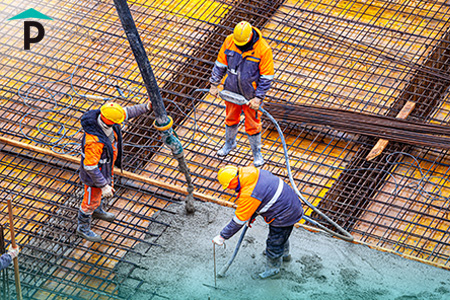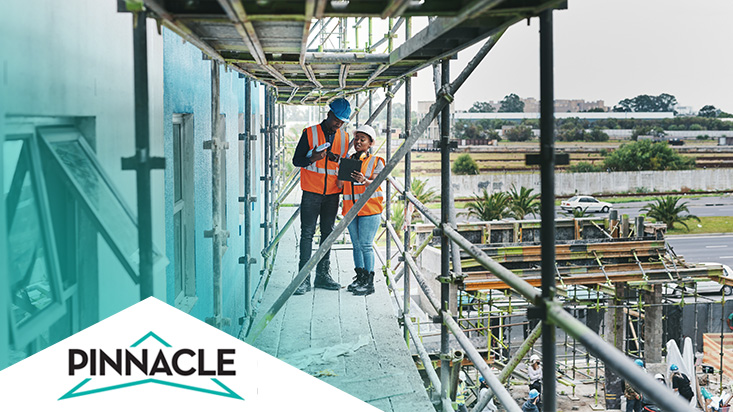The U.S. construction industry is booming. Figures from Statista show the sector was worth 1.6 trillion U.S. dollars in 2021, and this is expected to continue rising. Partnering with a trusted surety bonding company can play a crucial role in the success of your construction company to make the most of this opportunity. With assistance from Pinnacle Surety, securing surety bond construction requirements will be much smoother, and you will be able to maximize growth opportunities within the thriving construction industry.
Call: (844) 612-7238 to get started
Types of Construction Contract Bonds
Government-funded construction projects require surety bonds before a contractor can be awarded the project, as specified in Federal Acquisition Regulation (FAR). Construction contract bonds move the risk away from the project owner by guaranteeing the project owner that the work will be completed or compensated.
Bid bonds
Bid bonds allow contractors to demonstrate they will proceed and deliver the work if they are successful in the bidding process. Depending on the municipality, construction companies can expect to agree to a penal sum of between 5 and 10 percent, but it can be up to 20 percent. At Pinnacle Surety, we can get your bid moving faster thanks to our 24-hour turnaround on bond pre-qualification and approval processes.
Performance bonds
 Performance bonds are legally-binding and involve the obligee (project owner) receiving a guarantee from the surety company that the principal (contractor) will deliver the project on time and on budget. You may hear performance bonds described as construction completion bond or completion bonds for construction. If your project uses subcontractors to carry out part of the work, you may also want to obtain subcontractor bonds to protect your company against their work.
Performance bonds are legally-binding and involve the obligee (project owner) receiving a guarantee from the surety company that the principal (contractor) will deliver the project on time and on budget. You may hear performance bonds described as construction completion bond or completion bonds for construction. If your project uses subcontractors to carry out part of the work, you may also want to obtain subcontractor bonds to protect your company against their work.
To provide further protection to the obligee, the contractor may be required to provide development indemnity coverage insurance. This will enable the obligee to claim insurance for building issues and faulty construction.
Payment bonds
Payment bonds protect subcontractors and suppliers and can be called labor and material bonds. This legally-binding arrangement ensures construction companies pay their suppliers and subcontractors as agreed.
In addition to these main bond types, many other bonds are used in the construction industry to reduce risk and ensure the successful completion of projects. Here are some further surety bonds involved in the construction industry:
Subdivision improvement bonds
 Subdivision improvement bonds or site development bonds are required for contractors to obtain a subdivision agreement to carry out public improvements when developing a site. These land development bonds guarantee the developer will complete the work to the agreed standard following any building regulations, legislation, and bylaws. Subdivision bonds protect the financial interests of the municipality. If the work is not completed as expected, a claim against the bond can be filed to recover the costs.
Subdivision improvement bonds or site development bonds are required for contractors to obtain a subdivision agreement to carry out public improvements when developing a site. These land development bonds guarantee the developer will complete the work to the agreed standard following any building regulations, legislation, and bylaws. Subdivision bonds protect the financial interests of the municipality. If the work is not completed as expected, a claim against the bond can be filed to recover the costs.
Grading bonds
Grading bonds are required in some towns and cities. The grading bond may be required before any work is carried out on the site, so it is essential to check to ensure you do not break the law. At Pinnacle Surety, we will be happy to help you with the process of securing a grading bond for your project.
Growing a successful construction company is impossible without securing the appropriate surety bonds. Contact us at Pinnacle Surety for expert advice and to discuss your surety bond needs.


